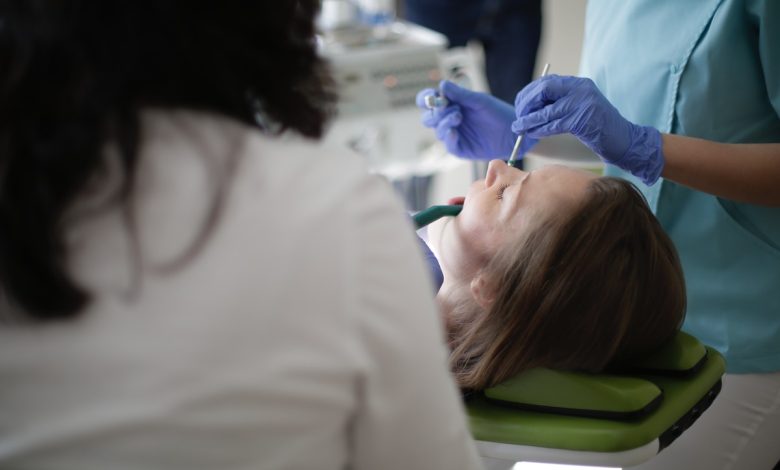5 Things that Could Be Causing Recurring Jaw Pain

We all have aches and pains from time to time and few of them can be more agonizing than a painful jaw. It is even worse when this pain reoccurs regularly. There are many things that can cause recurring jaw pain some can be tended to easily, but others may require more drastic measures. Read on to learn about the five things that could be causing your jaw pain.
Grinding and Clenching Your Teeth
Being stressed out is the major reason people will clench and grind their teeth. It is an obvious sign of stress and anxiety in a person’s life. The technical term for teeth grinding is bruxism and it often occurs as a person is subconsciously clenching their teeth.
This activity produces lots of tension in your teeth and jaw as well as the accompanying muscles, tendons, and ligaments. This tension often results in serious pain. This can be much more than the expected jaw pain, but it can also result in headaches and earaches. Doctors are not really certain about the causes of teeth grinding, but stress is known to be a major risk factor.
Grinding your teeth when you are awake is both annoying and painful, but when it occurs it is possible to become aware of it and take steps to stop it. Grinding your teeth while asleep is unfortunately harder to deal with. It is connected to changes in the depth of your sleep and tends to occur when the person is in a lighter sleep or close to waking up.
If you think you may be grinding your teeth at night, you may be able to get a night guard from your doctor that serves as a protective layer between your upper and lower teeth. They may also be able to provide you with suggestions on how to deal with the stress that causes the problem to begin with.
Temporomandibular Joint Disorder
The temporomandibular joints or “TMJ” for short, are the joints on each side of your jawbone. It serves as a hinge and connection point between your lower jaw and your skull. Unfortunately, from time-to-time things can go wrong with it causing pain, this is known as a TMJ disorder.
Despite the wide variety of possible TMJ disorders, jaw pain Is the symptom that they have most in common. Other symptoms can include jaw stiffness, difficulty opening your jaw, and a painful clicking or popping as you open and close your mouth.
Doctors can test for problems temporomandibular joint problems by way of a physical exam or an imaging test such as an X-ray to figure out what is occurring in your jaw. Fortunately, the pain is usually temporary and usually does not get any worse with time. because of this, a doctor will start out with simple solutions like lifestyle changes. However, if such treatments do not work, they will recommend surgery and send you to an oral and maxillofacial surgeon.
There is Something Wrong With Your Bite
Another source of jaw pain can be that there is something wrong with your bite. A bite is considered to be “good” when all of your teeth line up properly. This makes chewing easy and it is part of the way our mouths are designed to work.
On the other hand, a bite is considered to be “bad” when most of your teeth do not line up properly. There are many forms of bad bites but the two most common are an overbite and an underbite.
In an overbite, your upper teeth stick out over your lower teeth. In an underbite, your lower teeth stick out over your upper teeth. When your bite is uneven your jaw does not work properly producing strain on the joints and muscles causing pain. Often these problems can be fixed by braces, but sometimes they are bad enough to require surgery.
Untreated Cavity
Tooth cavities and even more serious forms of decay are frequent problems that people have throughout their lives. These cavities develop as a result of the interaction of bacteria from food and the acid in our saliva with our teeth. These problems can be reduced by regular proper brushing of our teeth, but you cannot avoid them completely and over time these problems will develop.
As long as cavities are small, they usually do not cause noticeable problems, and a dentist can simply fill them. However, an untreated cavity that reaches down into the nerves within a tooth can cause pain, and this will often be felt as a pain in the jaw.
These often need to be treated with more advanced procedures such as a root canal or pulling the tooth. This situation can become even worse if the tooth becomes abscessed. An abscessed tooth is caused by pus forming a pocket around the root of the tooth. This can cause a tremendous amount of pain in the jaw. The way to treat an abscessed tooth is to drain the pus.
Impacted Wisdom Teeth.
Some people have a third molar that comes out in their late teens or early twenties that are commonly called wisdom teeth. Not everyone gets them, and they are not needed for chewing but they can be used for it. People who get wisdom teeth usually get two on the top and two on the bottom. A problem can develop if your jaw is not big enough to provide room for these teeth to properly get through your gums.
In such cases, they can become trapped within the jawbone. This is referred to them as being impacted. When this happens, it can cause a lot of jaw pain, and wisdom teeth in this condition often need to be surgically removed. For some people, wisdom teeth are a pain even if they do not become impacted, but others go through life with wisdom teeth that never bothered them.
Jaw pain can be a severe problem and sadly there are several causes. Unfortunately, there is nothing you can do to prevent most of the causes of jaw pain. Fortunately, however, there are ways of treating them. If you have recurring jaw pain it is a good idea to see your doctor or dentist.




